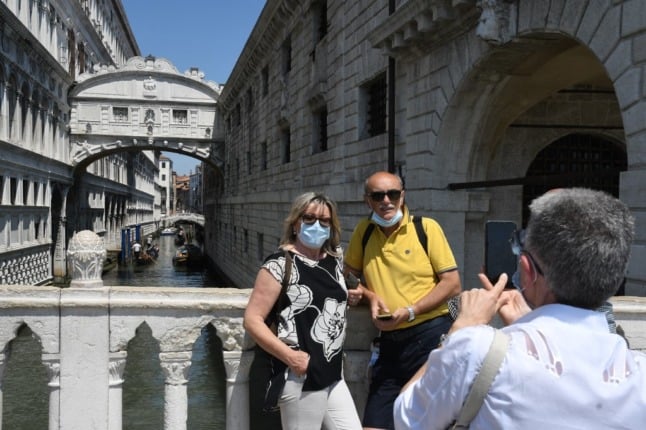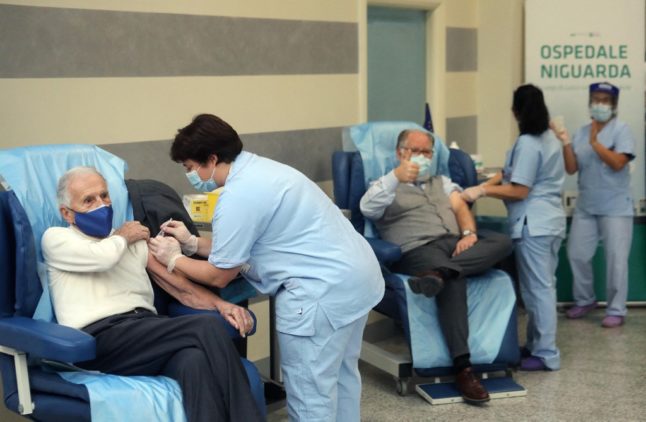Italy has required face masks to be worn outdoors as well as indoors since October 2020, and as temperatures soar across the country many people will be relieved to hear that these rules may soon be relaxed – at least somewhat.
On Monday afternoon the Italian government’s panel of scientific experts, the Scientific Technical Committee (CTS), is holding a meeting to discuss potential changes to the mask-wearing rules, the health ministry said.
The review comes as Italy allowed more regions to drop most coronavirus restrictions on Monday, after health data showed the infection rate was still falling nationwide.
READ ALSO: What you need to know if you’re travelling to Italy in summer 2021
At the moment, the Italian rules state that masks must be worn at all times when out of the house, indoors and outdoors, “except in cases where, due to the characteristics of the place or the circumstances, isolation is continuously guaranteed.”
Italian media reports on Monday suggest that July 5th is being considered as a possible date for dropping the requirement for masks to be worn in outdoor public places.
The expert panel may also be considering removing the rule a week earlier, on Monday June 28th, the first day on which the whole of Italy will be under ‘white zone’ rules – which mean most health measures can be lifted.
Though all regions except one are already in the low-risk ‘white zone’, the mask-wearing rule is among the few restrictions which remain in place under this tier.
If these rules are eased, social distancing is expected to remain in place and masks will still be required when in crowded outdoor areas, such as markets, according to media reports, as concerns remain high in Italy about a potential rise in new coronavirus cases fuelled by the Delta variant.
READ ALSO: Delta variant in Italy: What’s the risk of another Covid-19 surge?
While few cases caused by the new variant have been confirmed in Italy so far, the country analyses a relatively small number of tests to identify the virus strain behind infections.
Italy’s health authorities will increase the number of tests being sequenced from this week in order to help identify potential outbreaks, news agency Ansa reports.
Amid concern about new variants, Italy has from Monday extended a ban on travel from India, Bangladesh and Sri Lanka and brought in a five-day quarantine requirement for arrivals from the UK.
Italy has been reporting around 2,000 new daily infections on average nationwide since June 7th – the lowest figures seen since September 2020.
Italy has fully vaccinated almost 30 percent of the population over 12 years old as of Monday, official figures show.
In total, more than 46 million vaccine doses have been administered in Italy, though health authorities warn that one dose may not offer sufficient protection from Delta and other variants.



 Please whitelist us to continue reading.
Please whitelist us to continue reading.
I live in a US state in which covid is basically over. Nobody is wearing masks inside or out, in groups or not. Our cases are nearly zero as well as our deaths. There are currently 34 people in hospital out of a population of 2 million. I’m vaccinated and am wondering why I’m so dangerous to visit Italy without quarantining or changing my October flight to a “covid free flight,” which i’m sure will be more expensive, hard to find and frankly a completely unnecessary hassle. Maybe someone can tell me why this is the case.